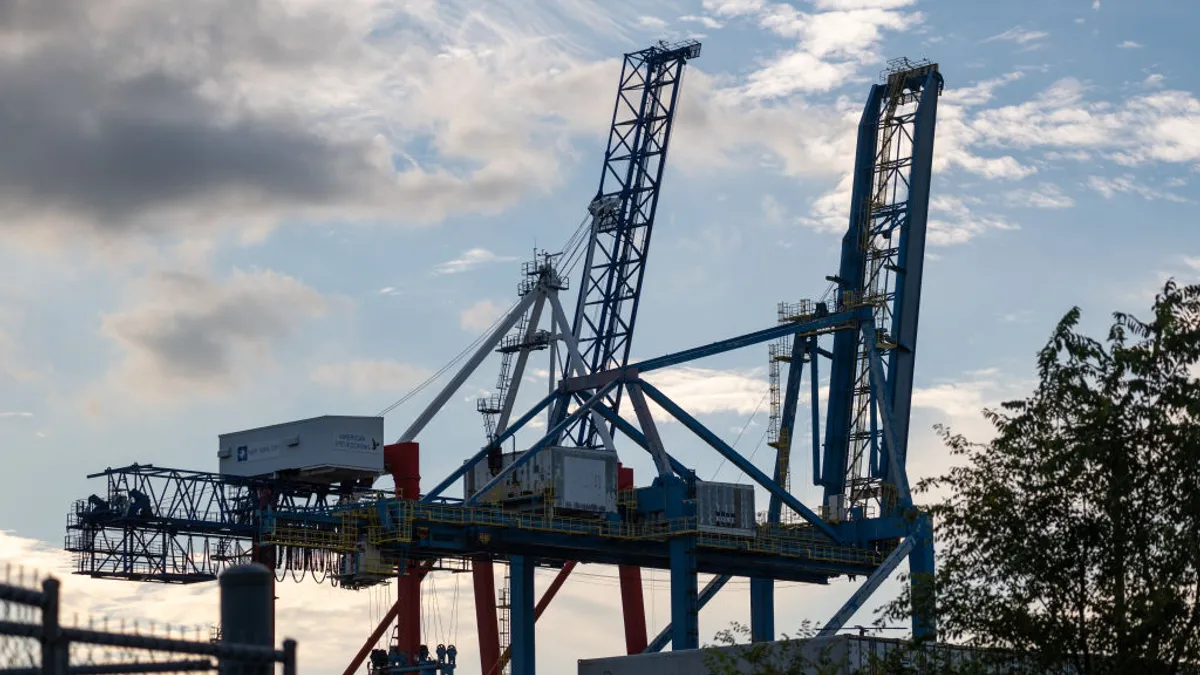Orbia CFO Jim Kelly said he and top leaders in his company have prepared for months for the tariffs that now appear set to go into effect against Mexico, Canada and China on Saturday.
The Mexico-based industrial products maker started scenario planning when tariffs emerged as a key talking point for Donald Trump while he was campaigning for a second term as president. Before Trump won the election, Orbia began drawing up strategies for responding to a variety of tariff scenarios.
“We feel we’re well prepared,” Kelly said in an interview Thursday. Companies should take a flexible approach given the possibility for quick policy shifts, he said, noting uncertainty regarding the anticipated Feb. 1 start date for the tariffs.
“One is going to need to be nimble…you have to really watch almost minute by minute what’s being enacted on both sides of the border and be ready to adjust to various scenarios,” Kelly said.
As of Friday afternoon, a White House press secretary said that Trump would implement 25% tariffs on Mexico and Canada, and a 10% duty on China, CNBC reported. But with less than 24 hours to go until the stated deadline, the outlook remained murky. The Wall Street Journal reported Friday that the president’s advisers were considering ways to avoid enacting the tariffs on Mexico and Canada that Trump proposed, citing people familiar with the matter.
For global businesses like Orbia, that kind of uncertainty isn’t altogether new: it’s part and parcel of the rising geopolitical risks that they are currently grappling with. Formerly known as Mexichem, Orbia has operations in 50 countries and reported 2023 revenue of $8.2 billion from five regions, including Europe (30%), North America (39%), South America (19%), Asia (10%) and Africa (3%), according to a January investor presentation.
“Geopolitically it’s a challenging environment globally,” Kelly said, adding the company is familiar with dealing with other types of geopolitical risks such as the implications of the Russia-Ukraine war.
The company’s wide-ranging businesses provide conduit and accessories for data networks, fluorine based products used in refrigeration and medical products like asthma inhalers, and pvc resin that downstream customers use to make pipes, along with irrigation and water management-related products.
Kelly said the tariffs against Mexican goods could most affect the company’s polymer solutions business — which makes the pvc resins — and its fluorine-based products business. Still, the duties probably would not have a material impact on the company’s financial results, he said.
Orbia declined to say what percentage of its revenue is from the U.S. market. Kelly attributed about 4% of Orbia’s revenue and 10% of its EBITDA from the company’s Mexico operations.
Among the steps that the company has pursued to protect itself against the tariffs are strategic inventory management, meaning getting inventory shipping to the U.S. before the tariffs go into effect; paving the way for raising prices by talking to customers about the possibility of higher costs; and ensuring logistical flexibility to ensure they can warehouse more or less goods in different locations as needed.
“Most of the contracts already have pricing flexibility, though many were more raw-material-cost sensitive as opposed to being specific to tariffs,” Kelly said. “So while we didn’t specifically change contractual terms, we did have conversations with customers to say, ‘Hey look, this is something we couldn’t really have anticipated at the time the contracts were negotiated and we are partners in the supply chain and you have to be realistic about this.’”
There’s also the possibility that the company could gain an advantage in the Mexican market should the Mexico government initiate retaliatory tariffs, he said. That could help offset the increase in tariffs on the U.S. side by making Mexico’s products cheaper on the Mexico side of the border.
“There is a ton of complexity to the whole thing but, that said, we are doing everything we can to be nimble and scenario plan,” Kelly said.















